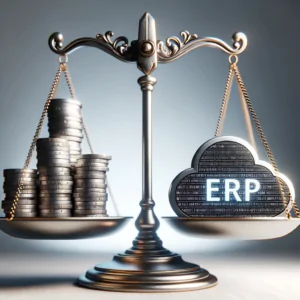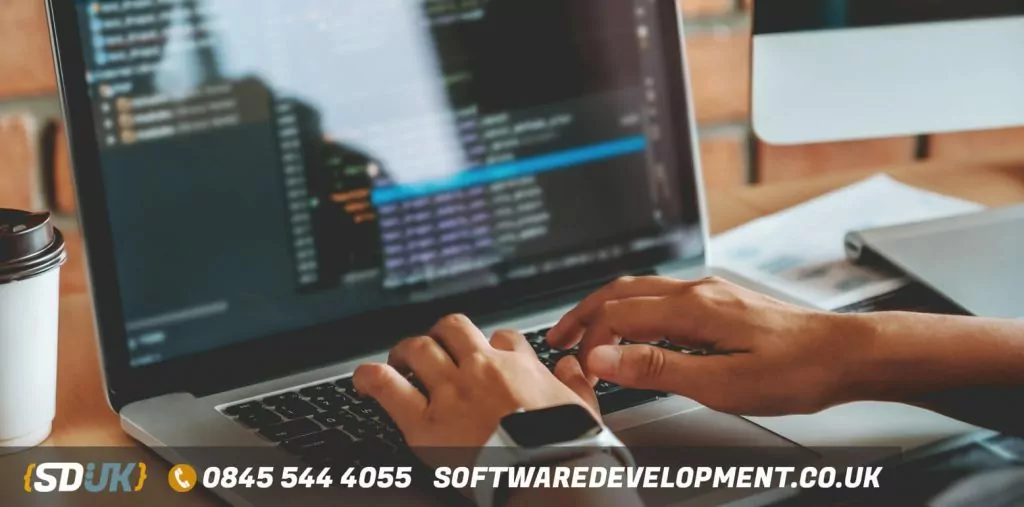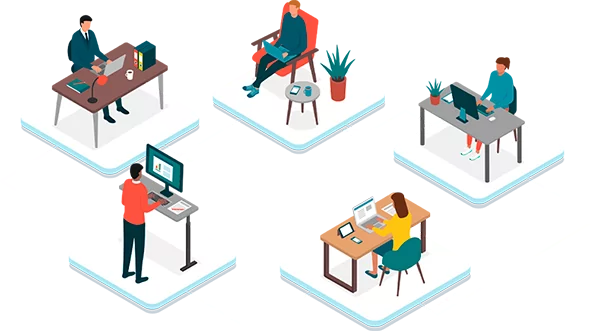Understanding the cost of bespoke ERP software requires a multi-faceted approach. The price is influenced by several factors, including the complexity of the features, the number of users, and the expertise of the software development company. For instance, a basic ERP system with limited features may cost around £20,000, while a more complex system with advanced modules could exceed £200,000. It’s crucial to consider not just the upfront costs but also the long-term expenses such as maintenance, upgrades, and training. Companies like Software Development UK offer a reusable platform, which can significantly reduce development costs and time.
NOTE: costs depicted within this article are representative of the projects Software Development UK have delivered on behalf of our clients.


Why Should a Business Consider Using Bespoke ERP Software?
Bespoke ERP software offers the advantage of tailored solutions that meet specific business needs, providing greater flexibility, scalability, and a potentially higher return on investment.
Choosing bespoke ERP software can offer several unique advantages to a business:
- Customisation: Bespoke ERP systems are tailored to meet the specific needs of your business, ensuring that you have the exact features and functionalities you require.
- Scalability: As your business grows, a custom ERP system can easily adapt to new requirements without the need for extensive modifications or additional modules.
- Competitive Advantage: A bespoke system can give you a competitive edge by streamlining operations in a way that off-the-shelf solutions can’t.
- Cost-Effectiveness: While the initial investment may be higher, the long-term benefits often outweigh the costs, especially if you partner with a software company that has a reusable platform, such as Software Development UK.
Opting for a bespoke ERP system can be a strategic decision that offers long-term benefits, making it a worthwhile consideration for many businesses.
What Factors Influence the Cost of Bespoke ERP Software?
The cost of bespoke ERP software is influenced by various factors such as feature complexity, user count, development time, and the expertise of the software company.
Understanding the cost of a bespoke ERP system is not straightforward, as it is influenced by a multitude of factors. Here’s a breakdown:
- Feature Complexity: The more features and modules you require, the higher the cost. For example, adding a Customer Relationship Management (CRM) module could increase the cost by 15-20%.
- User Count: The number of users who will be accessing the system also impacts the price. Licenses can range from £50 to £200 per user per month.
- Development Time: The longer it takes to develop the software, the more expensive it will be. On average, development can take 6-12 months.
- Company Expertise: Opting for a well-established company with a proven track record in ERP development can be more costly but often ensures a higher quality product.
- Ongoing Costs: Maintenance, upgrades, and training are long-term costs that should not be overlooked.
The following table is an illustration to help you understand the factors that impact cost and what the potential costs might be.
Table: Estimated Costs Based on Key Factors
| Factor | Low-End Cost (£) | High-End Cost (£) | Average Cost (£) |
| Feature Complexity | 5,000 | 50,000 | 20,000 |
| Integration Complexity (e.g., APIs, custom integrations) | 5,000 | 50,000 | 20,000 |
| Development Time | 10,000 | 100,000 | 40,000 |
| Company Expertise | 5,000 | 30,000 | 15,000 |
| Ongoing Costs | 2,000 | 10,000 | 5,000 |
Understanding these factors and their associated costs, businesses can make more informed decisions and better budget for a bespoke ERP system.

Why Can ERP Software Be Expensive?
ERP software can be expensive due to the complexity of features, customization requirements, and ongoing costs like maintenance and upgrades.
ERP software serves as the backbone of an organisation, integrating various departments and functions into a single system. This complexity is one of the main reasons why ERP software can be expensive. Here are some key factors:
Complex Features: Advanced modules like supply chain management and business intelligence add to the cost.
Customization: Tailoring the software to meet specific business needs can be time-consuming and costly.
Implementation: The process of setting up and deploying the ERP system involves various tasks such as data migration, system testing, and employee training.
Ongoing Costs: Maintenance, upgrades, and user training are recurring expenses that add to the total cost of ownership.
These factors can help businesses budget more effectively and make informed decisions when choosing an ERP system.
How Do Costs Vary for Small and Large Businesses?
The cost of ERP software varies significantly between small and large businesses, primarily due to the scale of operations, feature requirements, and user count.
The size of a business plays a crucial role in determining the cost of an ERP system. Here’s how:
- Small Businesses: Generally require fewer features and have a smaller user base, leading to lower costs. A basic ERP system for a small business could cost around £20,000.
- Medium-Sized Businesses: These businesses often need more advanced features and have a larger user base, pushing the cost to around £50,000 to £100,000.
- Large Corporations: With complex operations and a need for extensive customization, the cost can exceed £200,000.
The above factors can help businesses of all sizes budget more effectively for an ERP system.
Is Building Your Own ERP System a Cost-Effective Option?
Building your own ERP system can be cost-effective in the long run if you have specific, unique requirements that off-the-shelf solutions cannot meet. However, it comes with high initial development costs.
Creating a bespoke ERP system from scratch is a significant undertaking that involves various costs and considerations:
- Initial Development: The upfront cost can be substantial, often ranging from £20,000 to £200,000 depending on the complexity.
- Ongoing Maintenance: Custom systems require regular updates and maintenance, adding to the long-term costs.
- Time Investment: Developing a custom ERP system can take anywhere from 6 months to over a year.
- Expertise Required: You’ll need a team of skilled developers, which can be expensive to hire and retain.
The following table provides a comparison between bespoke and off-the-shelf software costs:
Table: Cost Comparison Between Building and Buying
| Aspect | Building Your Own (£) | Buying Off-the-Shelf (£) |
| Initial Cost | 20,000 – 200,000 | 20,000 – 70,000 |
| Maintenance (Annual) | 5,000 – 15,000 | 2,000 – 10,000 |
| Time Investment | 6 – 18 months | 1 – 6 months |
One major factor in reducing the cost of bespoke ERP software is to utilise a software company that not only has experience in developing ERP systems but also has development libraries or a reusable platform. Companies like Software Development UK offer such a platform, which can significantly reduce both development costs and time.

Need Expert Guidance?
We provide fully managed end-to-end solutions for operators and service companies needing expert guidance.
Take advantage of our unique {SD:UK} CTO as a Service solution. Our experts help you to formally capture requirements, create a system specification and then fully manage the implementation of your project for a successfull delivery.


The Time Factor: How Long Does It Take to Implement an ERP System?
The time required to implement an ERP system can vary widely, ranging from a few months for basic systems to over a year for complex, enterprise-level solutions.
The implementation timeline for an ERP system is influenced by several factors, each contributing to the overall duration of the project:
- Planning Phase: This involves requirement gathering, scope definition, and project planning. It can take 1-2 months.
- Development Phase: Customisation and development of the ERP system can take anywhere from 3 to 9 months, depending on complexity.
- Testing Phase: Rigorous testing is essential to ensure the system is bug-free and meets all requirements. This can take another 1-2 months.
- Deployment Phase: The final step involves deploying the system and training the users, which can take an additional month.
The time factor is crucial for businesses to plan their resources and set realistic expectations for ERP system implementation.
Should Every Business Invest in an ERP Package?
Investing in an ERP package is not a one-size-fits-all solution. While it offers numerous benefits like streamlined operations and improved efficiency, it may not be necessary for very small businesses or startups.
The decision to invest in an ERP package should be based on various factors:
- Business Size: Small businesses with simple operations may not require a full-fledged ERP system and could opt for more straightforward solutions.
- Complexity of Operations: Businesses with complex supply chains, multiple departments, and a large workforce can benefit significantly from an ERP system.
- Budget Constraints: ERP systems can be expensive, both in terms of initial investment and ongoing maintenance. Businesses need to assess if they can afford it.
- Future Growth: If a business plans to scale, an ERP system can be a wise investment to manage increased complexity.
Key Considerations for Investing in ERP
- Assess the complexity of your business operations.
- Consider your budget and financial constraints.
- Evaluate the potential for future growth and scalability.
Investing in an ERP package can offer a high return on investment for the right business but should be carefully considered based on individual needs and circumstances.


IT Outsourcing Done Right!
Outsourcing is no longer about just saving money, it is a strategic tool for accessing highly qualified experts to compliment your team and accelerate project delivery. The {SD:UK} team has an excellent track record for delivering high quality projects on time and on budget. Reach out to us for a free consultation with one of our experts.

Making Informed Decisions on ERP System Investments
The cost of implementing an ERP system is a complex subject, influenced by various factors such as the size of your business, the complexity of your operations, and the specific features you require. While off-the-shelf solutions offer quick deployment and lower initial costs, bespoke ERP systems provide the flexibility and scalability that many businesses need for long-term success.
Companies like Software Development UK, with their reusable platforms, offer a middle ground by providing customisable solutions that can significantly reduce both development time and costs. Whether you’re a small business looking for basic functionalities or a large corporation in need of a comprehensive system, understanding the various cost factors and options can help you make an informed decision that aligns with your business goals.
Investing in an ERP system is not just a financial decision but a strategic one that can impact your business’s efficiency, competitiveness, and growth. Therefore, it’s crucial to weigh all the pros and cons, consider your specific needs, and plan your budget carefully.
References for further reading:
For those interested in exploring the complexities of ERP system costs and implementation further, the following resources are highly recommended:
- Books:
- “Enterprise Resource Planning Systems: Systems, Life Cycle, Electronic Commerce, and Risk” by Daniel E. O’Leary
- “ERP: Making It Happen: The Implementers’ Guide to Success with Enterprise Resource Planning” by Thomas F. Wallace & Michael H. Kremzar
- Online Resources:
- ERP Software Blog – Offers insights into ERP trends and cost-saving tips.
- Gartner Research on ERP – Provides in-depth research papers and articles on ERP systems.
Frequently Asked Questions
Hidden costs can include data migration fees, third-party software integrations, and unexpected training costs.
Cloud-based ERP often has lower upfront costs but may have ongoing subscription fees, making the long-term costs comparable to on-premises solutions.
ERP systems generally need upgrading every 3-5 years to stay current with technological advancements.
Yes, most ERP systems offer integration capabilities with CRM, HRM, and other business software.
ERP focuses on streamlining business processes and operations, while CRM focuses on customer relationship management.
While not mandatory, hiring a consultant can provide expert advice and help avoid common pitfalls.
Consider factors like the vendor’s reputation, customer reviews, and whether they offer post-implementation support.
Yes, cloud-based ERP systems can be accessed remotely, making it easier to manage business operations from anywhere.

